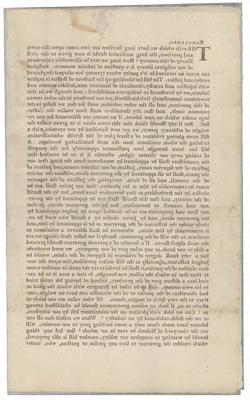Gentlemen, The evils which we have long foreseen are now come upon this town and province ...
To order an image, navigate to the full
display and click "request this image"
on the blue toolbar.
-
Choose an alternate description of this item written for these projects:
- Main description
[ This description is from the project: Coming of the American Revolution ]
In response to the recent Coercive Acts passed by Parliament, the Boston Committee of Correspondence circulated a letter on 8 June 1774 outlining Parliament's actions and proposing that colonists resist the regulations.
"we suffer in the common cause"
In response to the "intolerable" acts passed by Parliament in the spring of 1774, the Boston Committee of Correspondence works feverishly to elicit sympathy for the town. Reminding fellow colonists that they "suffer in the common cause," the committee circulates a letter on 8 June outlining Parliament's actions and proposing that colonists take dramatic action in response. The plan outlined by the committee is familiar, but has rarely been successful in the past. Will Bostonians finally make it work?
Questions to Consider
1. To whom is this document addressed?
2. List some of the "charter rights" that colonists fear they are losing due to a recent act of Parliament. Which acts of Parliament are allegedly responsible for the loss?
3. How does the committee of correspondence propose to "prevent … the horrors that must follow an open rupture between Great Britain and her colonies?" What is their proposed plan?
Further Exploration
4. How will colonists participate in the proposed plan?
5. On page 1, the authors refer to "the vine-yard of Naboth." Who or what is Naboth? Why would the colonists draw parallels to this particular Biblical story?
6. This plan is sometimes called the "solemn league and covenant." What is a covenant? Is this an appropriate name for Boston's plan? Explain your answer using evidence from the document.
7. The colonies have mounted non-importation and non-consumption campaign in the past. Read at least one of their past proposals and compare it to the plan presented here. How are the plans similar? How are they different? For an example of an earlier non-importation plan, see John Rowe's diary entry for 4 March 1765.

